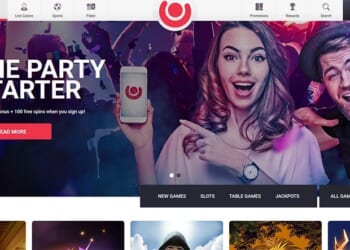Once a quintessential companion for any social event, alcoholic beverages are becoming passé. A recent Gallup poll found that Americans’ drinking habits are at an all-time low, with only 54% of adults saying they consume alcohol.
For nearly three decades, at least 60% of Americans reported that they drink. 2024 marked the end of this era, with the number of drinkers dipping to 58%. This decline seemed to follow greater public awareness about the health risks associated with drinking, as 53% of Americans stated that moderate alcohol consumption is bad for one’s health. For example, in early 2023, The Lancet Public Health published a paper cautioning that no amount of alcohol consumption is safe for health. The body’s process of breaking down ethanol, alcohol’s active ingredient, creates acetaldehyde, a chemical that is believed to be a human carcinogen.
Researchers have interpreted these biological effects as proof that alcoholic beverages pose a cancer risk, regardless of their quality or price point. There is also no evidence to suggest that the potential protective effects of drinking mitigate these negative consequences.
Earlier this year, former Surgeon General Vivek Murthy issued an advisory calling for alcoholic beverages to be labeled with a cancer risk warning. Another recent study found that U.S. deaths from alcohol-related cancer have increased over the past three decades, particularly among men and individuals aged 55 and older.
In addition to potentially carcinogenic effects, other health risks associated with imbibing include premature mortality, addiction, liver cirrhosis, and cardiovascular disease. Every day, about 34 Americans die at the hands of drunk drivers.
In pregnant women, alcohol exposure is associated with fetal alcohol spectrum disorder. Alcohol can damage a fetus’s organs, affect brain development, and lead to cognitive and behavioral issues, like learning disabilities and attention deficit hyperactivity disorder, that may not become apparent until a child is school-aged.
According to Gallup’s findings, abstinence from alcohol is more prevalent among women, Republicans, and young Americans. Regarding why, younger generations were spared inaccurate messaging about the health benefits of drinking wine daily. I also believe that in our post-pandemic, digital era, society has become isolated. With fewer get-togethers and less socialization with strangers, young people have less of a reason to turn to alcohol to inspire extraversion and avoid uncomfortable interactions.
Gen Z (aged 13-30) also prefers using marijuana to alcohol, which is probably due to their documented heightened rates of anxiety. Due to alcohol’s disinhibiting effects, anxious individuals may initially turn to drinking as a social lubricant and a way to help them relax, but over time, this can result in a rebound with symptoms, as well as panic attacks. Marijuana can be just as problematic, however, leading to dependence, memory problems, depression, psychosis, and a worsening of anxiety.
As for why more women and Republicans are eschewing alcohol, the MAHA movement helped to inspire greater awareness about health consciousness, particularly among women. Previous statistics from Gallup showed that individuals who attend religious services weekly are less likely to say they drink than those who attend less frequently.
Finally, as pointed out by Michael Knowles, President Donald Trump doesn’t drink. During a press conference in 2017, Trump spoke of his late brother, Fred Jr., who died at the age of 42 from a heart attack related to alcoholism. In Trump’s words, Fred Jr. often cautioned him, “Don’t drink.”
I quit drinking eight years ago. Back then, it was rare to encounter a fellow teetotaller in the wild. What I found particularly interesting was that, at social events, whenever someone noticed that I wasn’t drinking, they would usually comment on one of two things: either that they couldn’t understand why a person would electively stop drinking, or that they secretly wished they could cut down on their drinking but felt social pressure to conform. It seems Trump normalized the decision to abstain entirely.
DOJ INVESTIGATING DC POLICE OVER ALLEGATIONS OF MANIPULATED CRIME DATA
It’s possible, of course, that the individuals telling pollsters about their drinking habits are answering in a socially desirable way, downplaying the extent to which they drink, now that alcohol’s reputation is less glamorous.
But all in all, it’s good news that people are taking their health seriously and recognizing the trade-offs associated with booziness.
Dr. Debra Soh is a sex neuroscientist and the author of “The End of Gender.” Follow her @DrDebraSoh and visit DrDebraSoh.com.














